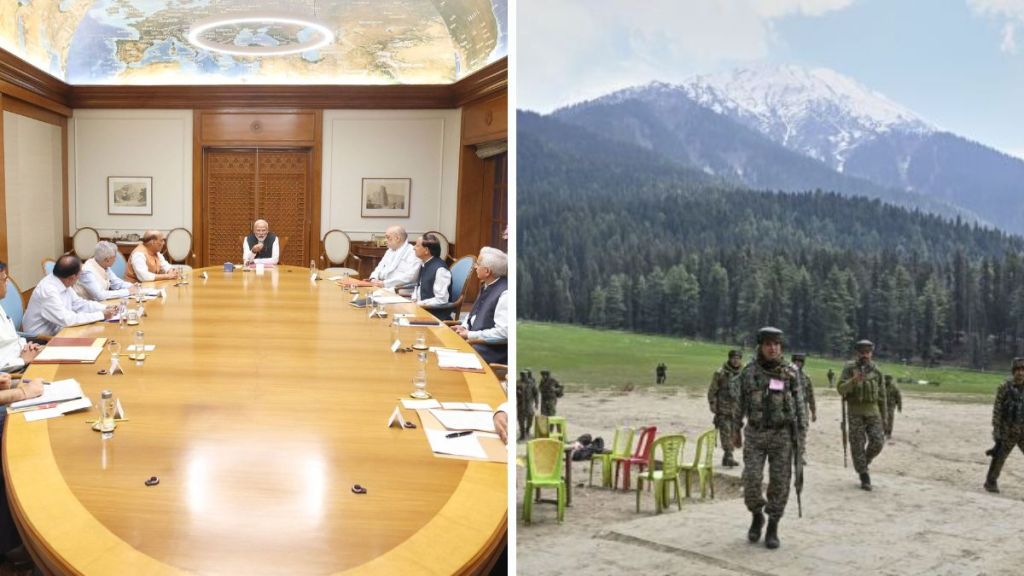In a strong diplomatic and strategic move, India on Wednesday (April 23) announced a series of countermeasures targeting Pakistan, following the recent terror attack on civilians in Pahalgam, Jammu and Kashmir. The Ministry of External Affairs (MEA) outlined five key actions, describing them as part of a “decisive response to cross-border terrorism.”
These actions represent a major intensification of diplomatic tensions between India and Pakistan, following the deadly attack in Pahalgam’s Baisaran Valley on Tuesday. The Indian Ministry of External Affairs confirmed that 25 Indian nationals and one Nepali citizen were killed in a terror attack in Kashmir. The attack, which took place in the Pahalgam region of Jammu and Kashmir, also left several others injured.
Here are the major measures announced by the MEA
Indus Waters Treaty Suspended: India has suspended its cooperation under the 1960 Indus Waters Treaty, which governs the sharing of 39 billion cubic meters of water annually from the Indus River system to Pakistan. This move marks a significant shift in what has long been seen as a rare symbol of bilateral cooperation.
Closure of the Attari-Wagah Border: The Attari-Wagah land crossing, an important route for trade and civilian travel between the two nations, has been shut down with immediate effect.
Travel Ban on Pakistani Nationals: Pakistani nationals are prohibited from traveling to India under the SAARC Visa Exemption Scheme, with all previously issued visas now canceled. Those currently in the country have been given 48 hours to depart.
Expulsion of Pakistani Military Advisors: India has expelled all military, naval, and air advisors posted at the Pakistan High Commission in New Delhi, signaling a major reduction in military diplomatic ties.
Reduction in Diplomatic Staff: India has directed Pakistan to reduce its diplomatic staff in New Delhi to 30 personnel from the current 55, effectively scaling down the High Commission’s operational capacity.

